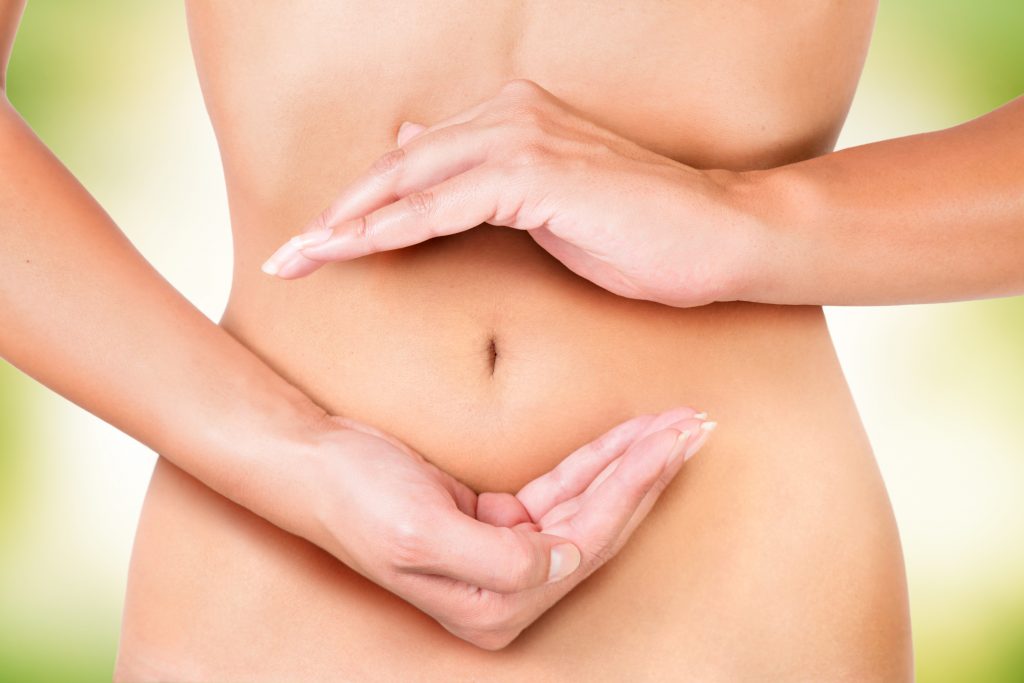How Your Gut Bacteria Influences Your Health

Dysbiosis – A Hidden Cause of Leaky Gut and All Chronic Health Conditions
Did you know that you have more bacteria in your body than human cells? It’s true. Gut bacteria actually outnumber your cells by 10 to 1, making gut bacteria one of the most, (if not the most important) factor affecting your health. Today, I’m going to share with you what an imbalance in your gut bacteria is, how it impacts your health, and what you can do about restoring and maintaining a healthy balance of bacteria in your gut in order to create the healthiest environment in your body and the best possible health for you.
What It Is?
Dysbiosis is an imbalance in your gut’s bacteria. The gut is home to 70-100 trillion beneficial bacteria, such as lactobacillus, acidophilus, and bifidobacteria. However, it is also home to trillions of bad bacteria, such as yeast and fungal strains of bacteria. An imbalance occurs in the gut and body when an overgrowth of the bad bacteria exists.
Why It’s Important?
The immense number of bacteria (both good and bad) in the gut – often called your intestinal microflora (there are ten times the number of bacteria in the body as actual human cells) – play a vital role in your overall health. Both kinds of bacteria are necessary for optimal health, but when there is an overgrowth of bad bacteria, it tends to destroy too much of the good bacteria, leaving the body’s immune system weakened to the point that autoimmune diseases develop.
This microflora is part of your immune system. Research has shown that various microbes – bacteria, fungi, and even viruses – play important roles in your body’s functioning¹.
The good bacteria metabolize toxins into less harmful forms, therefore when the good bacteria become low, your gut cannot reduce the harmful effects of toxins. The friendly bacteria’s role is extremely important in overall health, and we cannot enjoy optimal health without a large number of them.
Good bacteria also support your immune system and boost energy levels by strengthening the intestinal wall, increasing the mucosal lining of the gut, and helping to slough off microbes and pathogens. Other benefits include:
- improving cholesterol levels
- regulating hormone levels
- reducing yeast infection occurrences
- supporting a healthy weight
- and improving oral health².
How to Do It
Supplements
Here’s the scoop on some of the best supplements to heal Dysbiosis, leaky gut, and autoimmune disease. (Note: Always consult with a qualified health care professional before embarking on any supplemental program.)
Probiotics – Probiotics decrease dysbiosis (imbalance of good and bad bacteria in gut), increase the friendly bacteria, and help with intestinal balance. Make sure to get a brand that has multiple strains and at least 15 billion colony-forming units, (CFUs). Here’s one I recommend. (For a 15% discount, enter code 4326).
Recommended dosage: 1-2 capsules daily, or more, depending on your health condition.
Diegestive Enzymes—These enzymes help to ensure the breakdown of food and assist in the absorption of vitamins and minerals in your body for the maximum utilization of food.
Recommended dosage: 2 capsules before meals. Here’s one I recommend. (For a 15% discount, enter code 4326).
Betaine Hydrochloride (HCL) with pepsin – Betaine HCL is a powerful digestive aid. As we age, the body naturally produces less digestive enzymes. Due to this lowering in enzymatic activity, Betaine HCL levels also decrease. This supplement helps the stomach break down fats and proteins by increasing the acid level in your stomach, which assists with the detoxification processes in the body. It is an essential component for metabolizing and absorbing food. Here’s one I recommend. (For a 15% discount, enter code 4326).
Recommended dosage: One to two capsules before meals.
L-Glutamine – Glutamine may serve to boost your immune system. (Glutamine is a primary energy source for your immune system.) It is one of the most important nutrients for your intestines and has the ability to repair a leaky gut by maintaining the structural integrity of the bowels. Research has shown Glutamine can also help you improve growth hormone levels. A study has shown that 2 grams of L-Glutamine increased growth hormones by over 400 percent.³
Recommended dosage: One tablet/capsule twice a day on empty stomach.
Fiber – Fiber increases bowel movements, and pulls toxins and binds them so they are removed in order to help you feel fuller longer.
Recommended dosage: Depends on fiber. Follow instructions on product.
Vitamin D – This vitamin supports gut health and the immune system.
Recommended dosage: Check with health care professional. Typically between 2,000-10,000 IUs daily depending on your needs.
Essential fats (like EPA/DHA Omega 3s) – Fatty acids calm inflammation and rebuild healthy cell walls. The recommended ratio of Omega 6:Omega 3 is between 4:1 and 1:4.
Recommended dosage: DO NOT take more than 3 grams (about 5 capsules) of omega-3 fatty acids daily without the supervision of a health care provider due to its blood-thinning properties that pose an increased risk of bleeding.
Deglycyrrhizinated Licorice (DGL) – This herb has been used for over 3,000 years in the treatment of digestive issues including ulcers and indigestion. DGL supports maintenance of the mucosal lining of the stomach and duodenum.
Recommended dosage: Consult with your health care professional.
Marshmallow Root – This herb eases inflammation in the stomach lining. It has also been show to heal ulcers, and because of its mucosal properties, it is used to treat both diarrhea and constipation.
Recommended dosage: Consult with your health care professional.

Medicinal Foods
In addition to the supplements listed above, you can also familiarize yourself with some of the best medicinal foods that repair bacterial imbalance in the gut. Here’s a short list of some of the best medicinal foods to heal dysbiosis, leaky gut, and autoimmune disease (or any chronic disease), and what to look for when you shop and stock your pantry in the future:
High quality proteins – Try to buy meats that are grass fed, pasture raised, and humanely killed. Try to buy fish that is wild caught, and avoid farm raised fish unless it is designated as a consciously-farmed fish.
Fiber-rich vegetables – Vegetables are loaded with vitamins, minerals and phytonutrients, or micronutrients. Try to buy organic whenever possible, or from your local farmers markets as organic has more nutrition and less pesticides.
Good sources of fats – Good fats are important to digestion and overall health. Try including cold water fish, avocados, and extra virgin olive oil (rich in Omega 3s). Coconut oil in particular has fatty acids that are beneficial in treating Dysbiosis, and contains antimicrobial properties to fight yeasts and fungus.
What causes Dysbiosis?4
There are many factors that contribute to your microbiome (the microorganisms in the human body) becoming out of balance by destroying good bacteria and promoting bad bacteria. Here are some of those reasons:
- Constant exposure to toxins such as cleaning products, plastics, pesticides, and additives to our food.
- Overuse of antibiotics. Unfortunately, antibiotics kill all the bacteria in the gut, good and bad, and oftentimes the good bacteria don’t replenish fully, which allows the bad bacteria to increase to harmful levels.
- Poor digestion.
- Stress.
- Non-steroidal anti-inflammatory drugs, (NSAIDs such as aspirin, Ibuprofen, Advil), and other prescriptions.
- Candida and other yeasts and fungus.
- Acute emotional or physical trauma.
- Parasites.
- Infections that never resolve (oftentimes hidden).
- Widespread use of cleansers (antibacterial soaps, shampoos, and creams).
- Chlorinated drinking water. Chlorine kills all bacteria, good or bad.
- Exposure to pollutants such as heavy metals, including amalgam dental fillings. Mercury is extremely toxic.
In Your Journal (or any notebook)
- Choose one or two supplements you would like to add to your diet (after first consulting with a health care professional) and write them down in your journal.
- Choose one new kind of fat, such as coconut oil, and make a note in your journal to look into these food recommendations. If you want to go further, add some of these items to your shopping list.
- Choose one to three things you can do to reduce any dysbiosis you have and write them in your journal, with the intention to follow through on making the changes.
Love and blessings

¹ Dr. Mercola, “Modern Life Depletes Your Gut Microbes in a Number of Different Ways,” May 6, 2015.
² Dr. David Williams, “9 Ways Good Gut Bacteria Support Your Overall Health (That Have Nothing to Do With Digestion),” accessed January 15, 2016.
³ T. C. Welbourne, “Increased Plasma Bicarbonate and Growth Hormone after an Oral Glutamine Load,” American Journal of Clinical Nutrition (1995), 1058-61. Also see here.
4 Megan Morris, “Dysbiosis, Did You Know…?” The Root of Health Blog, accessed February 2, 2016.
